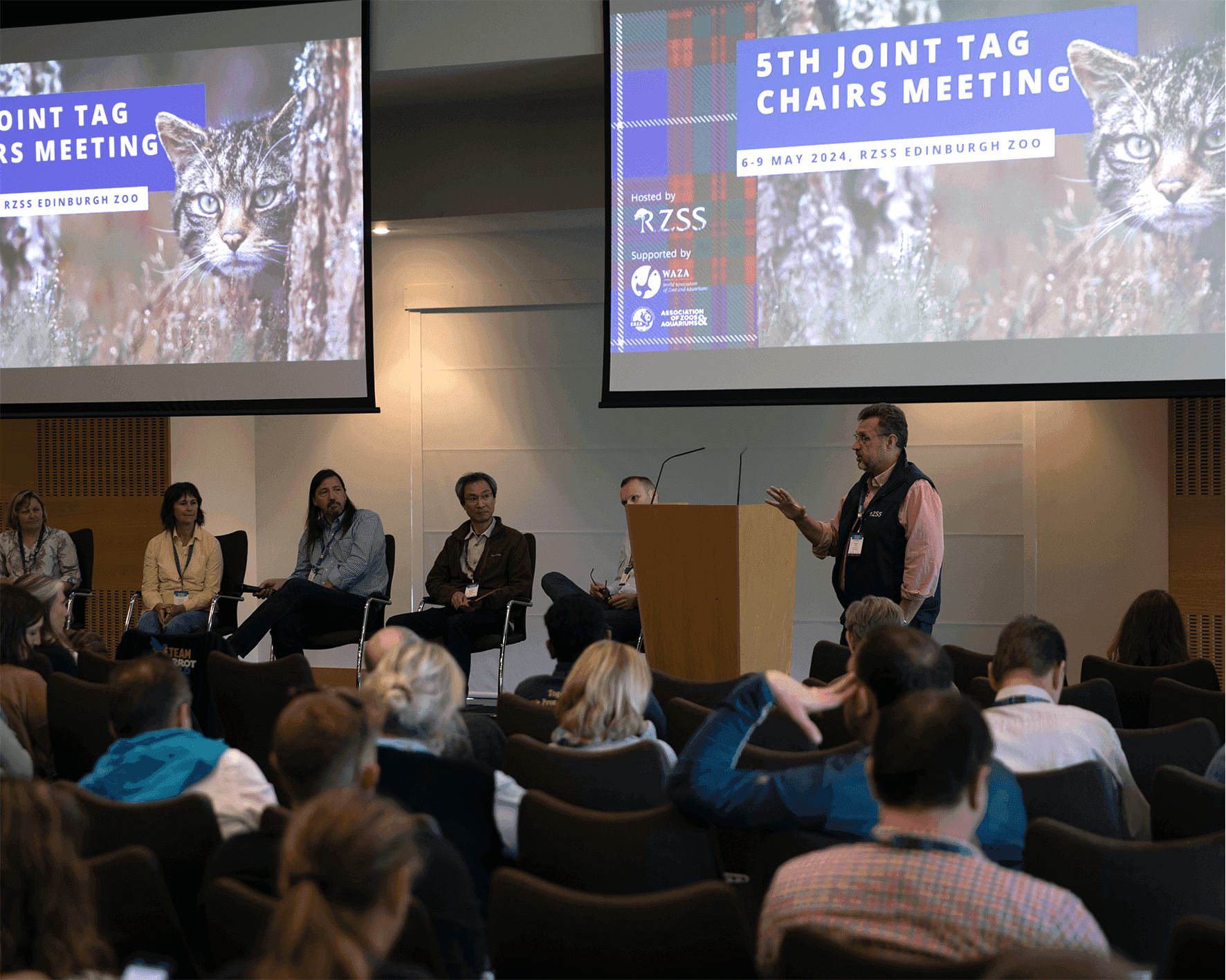EAZA Events
Collaboration and knowledge sharing is at the heart of EAZA's work and nowhere is that more obvious than at face-to-face meetings.
EAZA events
Sharing knowledge and skills across all levels of staff within the zoo and aquarium community leads to better results in conservation, research and education – and lively debate helps us to understand where and how we need to direct our collective efforts.
We encourage Members to allocate budget for their staff to attend EAZA events to build knowledge of contemporary zoo and aquarium practice and learn about other disciplines and specialisms.
These events include: the EAZA Annual Conference, EAZA Animal Welfare Forum, EAZA Conservation Forum, EAZA Conservation Education Conference, EAZA Directors' Days and European Zoo Nutrition Conference. Of these, the Annual Conference represents the widest cross-section of activities undertaken by Members. Scroll down for more details about our events.
Conference proceedings are available on the EAZA Member Area. Recordings of some of the events' sessions can be found on the EAZA YouTube channel.
Annual Conference
The EAZA Annual Conference is the biggest annual gathering of the European zoo and aquarium community, bringing more than 600 delegates together for four days of meetings, presentations, discussions and networking opportunities. The event is primarily aimed at EAZA Members, with most of EAZA's TAGs and Committees holding meetings alongside a variety of special workshops. Plenary sessions bring all conference delegates together to focus on topics of broad interest to the community.
The EAZA Annual Conference 2024 was hosted by Leipzig Zoo (Germany) from 8 - 12 October, 2024. The next EAZA Annual Conference will take place in Łódź, Poland from 9-13 September 2025. Registration for AC25 will open mid-February 2025. See here for previous EAZA Annual Conference editions.
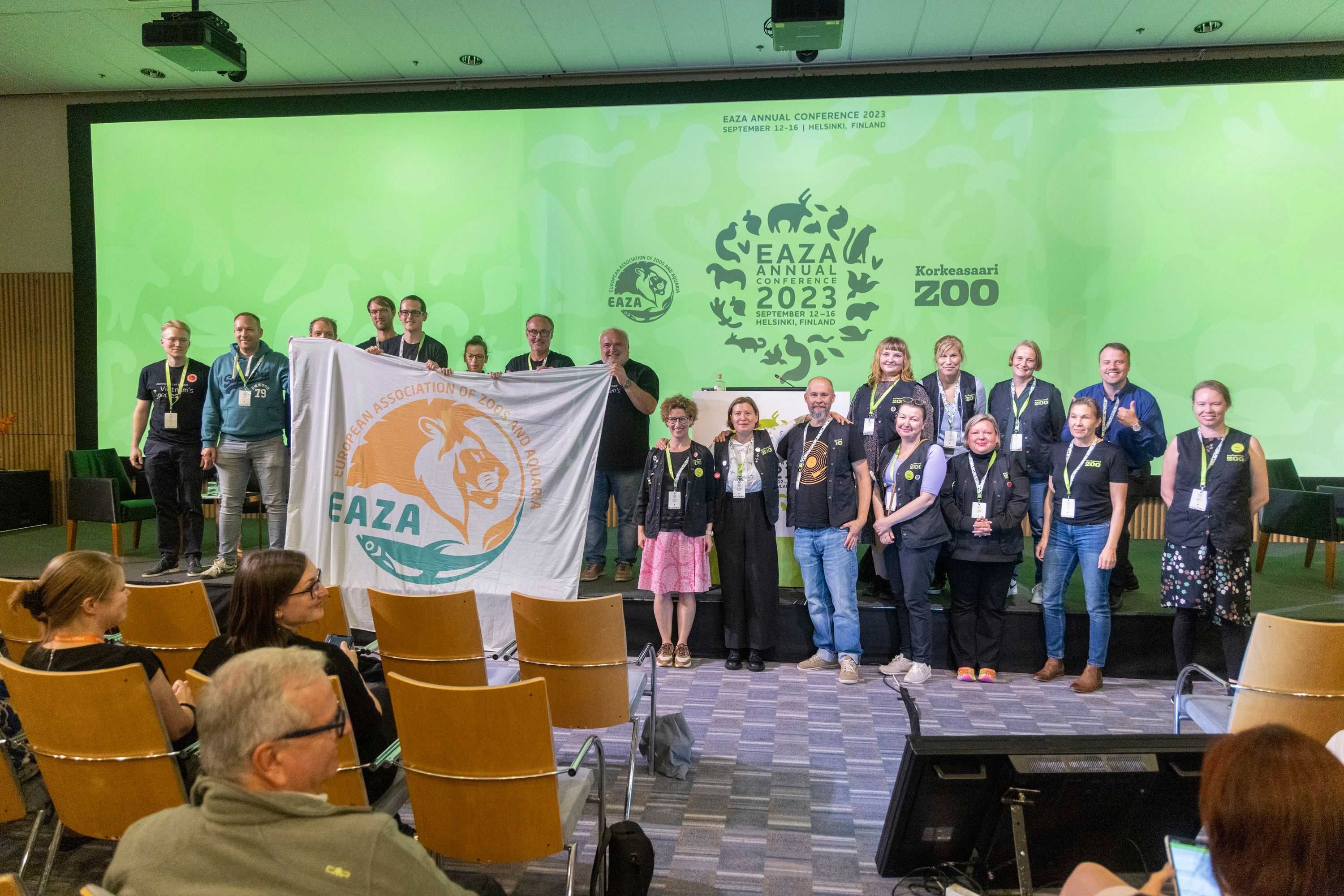
European Zoo Nutrition Conference
This biennial conference is regularly attended by 120-160 delegates from about 20 countries, representing zoo nutritionists, veterinarians, curators, animal keepers, staff and students from higher education institutes and private individuals. The conference is a major event for information exchange between individuals involved in zoo animal nutrition in Europe. The event is usually preceded by an optional one-day EAZA Academy workshop.
The next European Zoo Nutrition Conference will be hosted by Primate Park Apenheul (the Netherlands) 23 - 26 January 2025.
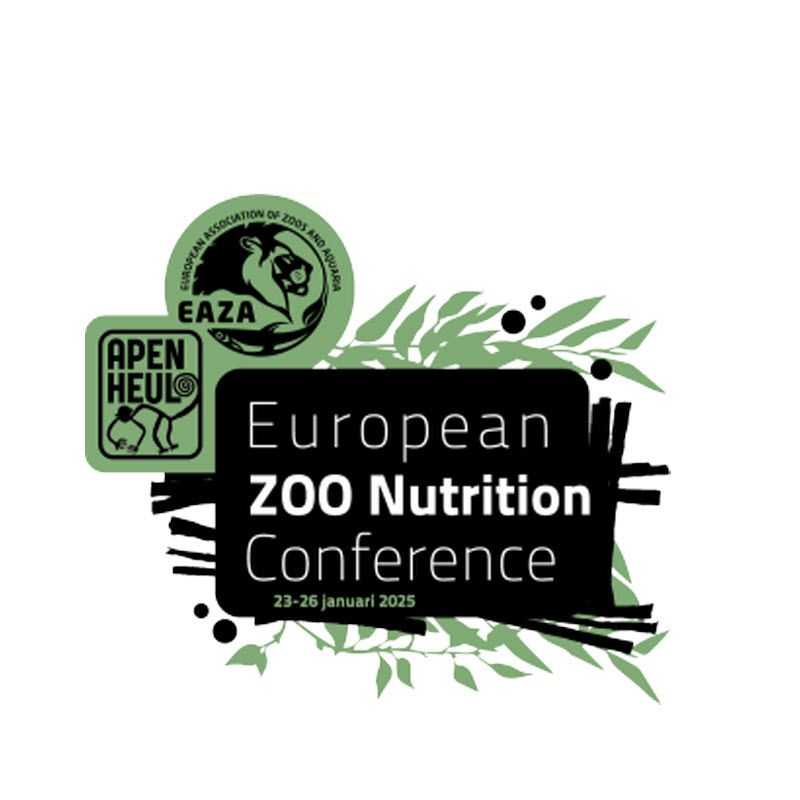
EAZA Education Conference
The EAZA Education Conference is a biennial event. It brings together educators from across Europe and beyond for three days of presentations, workshops, and activities focused on sharing good practice and highlighting future trends in zoo and aquarium education. Regularly attracting 150-180 delegates, the EAZA Conservation Education Conference provides invaluable opportunities for educators to connect with each other and share their experiences.
The next EAZA Education Conference will be hosted by Chester Zoo (United Kingdom) from 17-21 March 2025. Early-bird registration is now available until 21 January 2025.
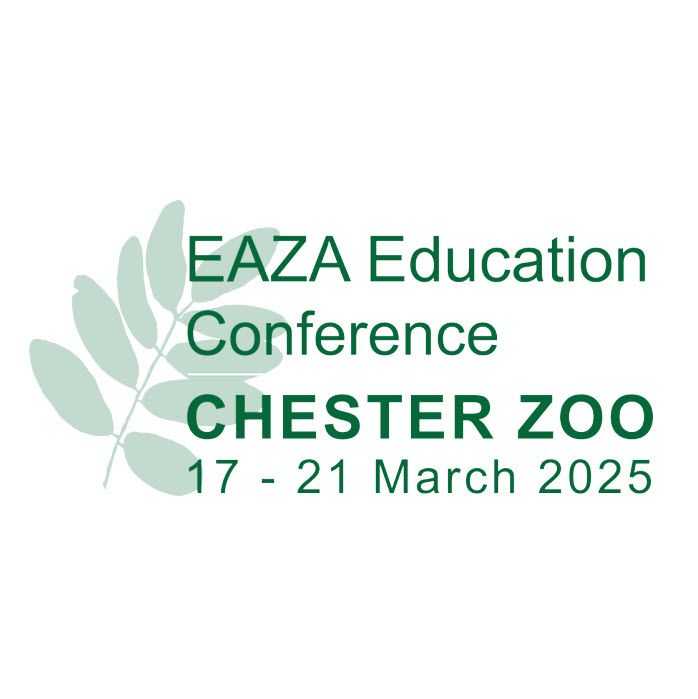
EAZA Directors' Days
EAZA Directors' Days and Annual General Meeting can be attended upon invitation only. This event is open to Director level employees of EAZA Member institutions of all institutional and organisational categories (inclusive of Full, Temporary and Candidate for Membership institutions (a support letter of the respective mentor is required) and National Associations).
The next EAZA Directors' Days will be hosted by Oceanogràfic Valencia (Spain) from 1-4 April 2025. Save the date!
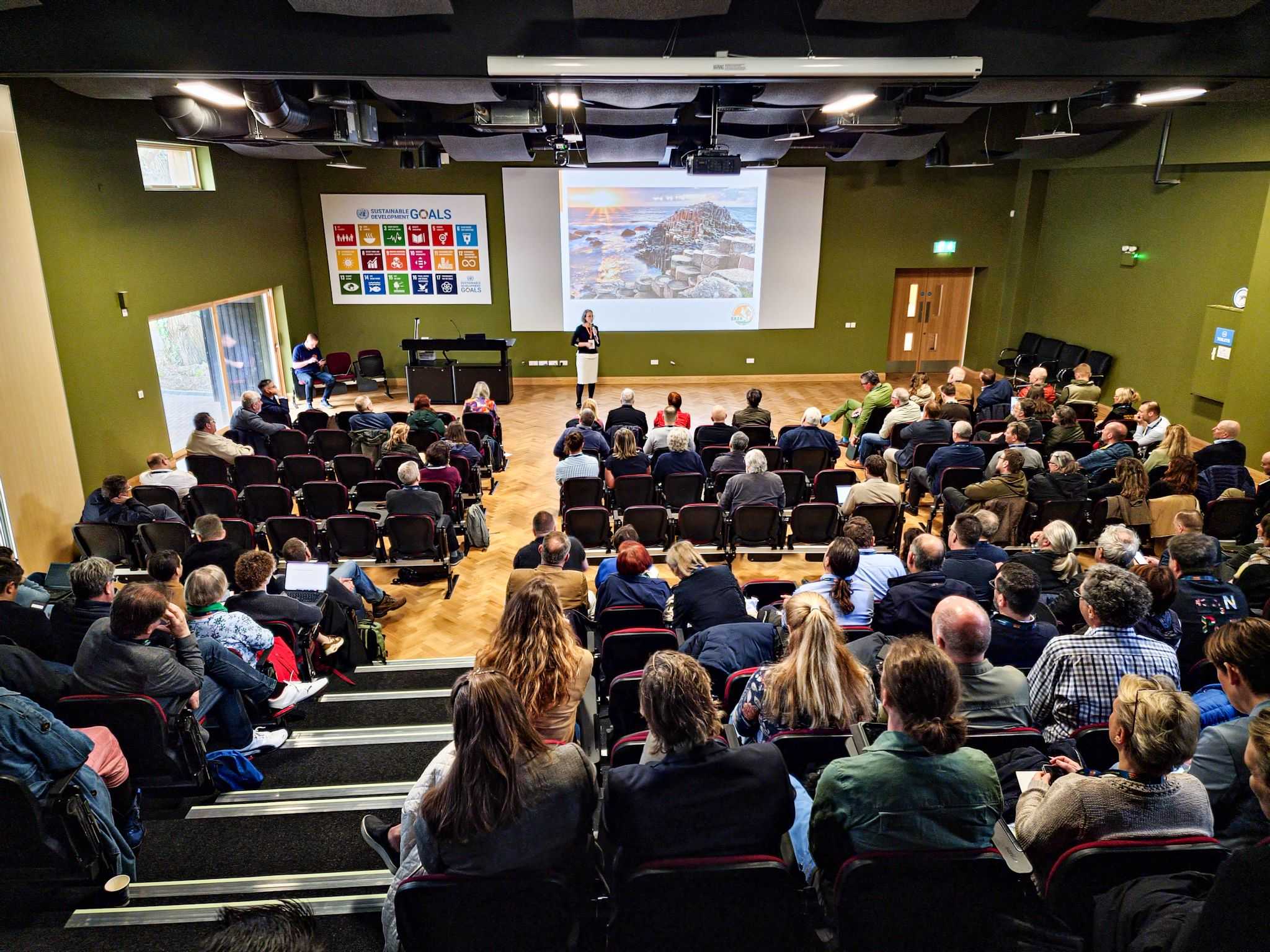
EAZA Animal Welfare Forum
The EAZA Animal Welfare Forum is a relatively new biennial event. Each of the two editions brought together around 200 representatives of zoos and aquariums, welfare organisations and academic institutions for three days of workshops, presentations and other activities, discussing and highlighting an evidence-based approach to animal welfare and bridging the gap between welfare research and application.
Parco Natura Viva (Italy) hosted the second EAZA Animal Welfare Forum 2024 in March 2024. The next EAZA Animal Welfare Forum will be hosted by Zoo Antwerp (Belgium),16 -19 March, 2026.
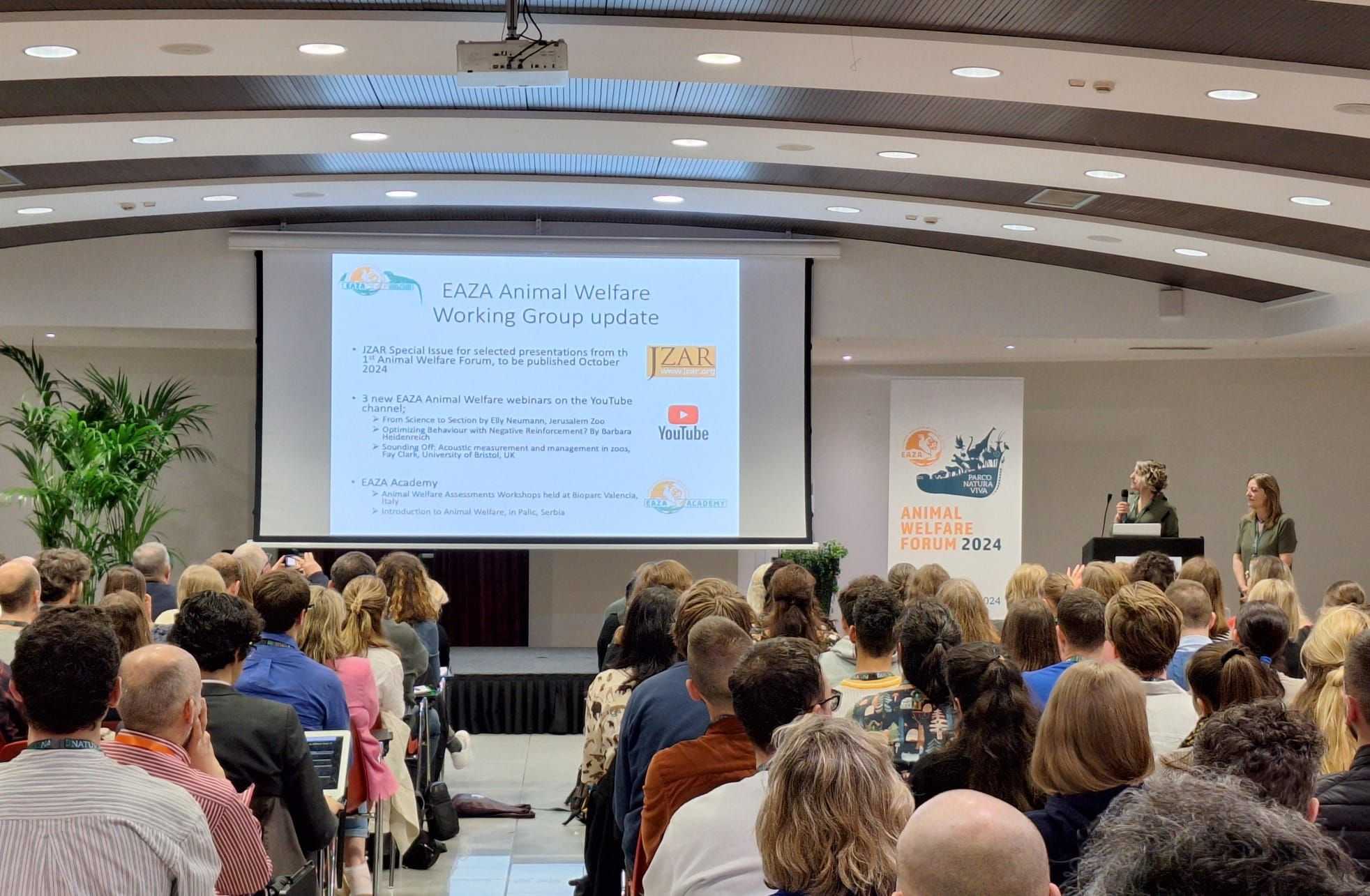
EAZA Conservation Forum
Species conservation is one of the predominant objectives of EAZA and its Members. The conservation role of zoos and aquariums extends far beyond helping to save endangered species through ex situ population management programmes. Through their links with in situ projects, EAZA Members are also active in the conservation of species within their habitats and entire ecosystems.
The EAZA Conservation Forum is a biennial event bringing together over 100 representatives of zoos and aquariums, conservation organisations and in situ conservation projects for three days of workshops, presentations and other activities.
The EAZA Conservation Forum 2024 was hosted by Ostrava Zoo (Czechia) on 4 - 7 June 2024. The next EAZA Conservation Forum will be hosted by Opel-Zoo (Germany), from 19 - 22 May, 2026.
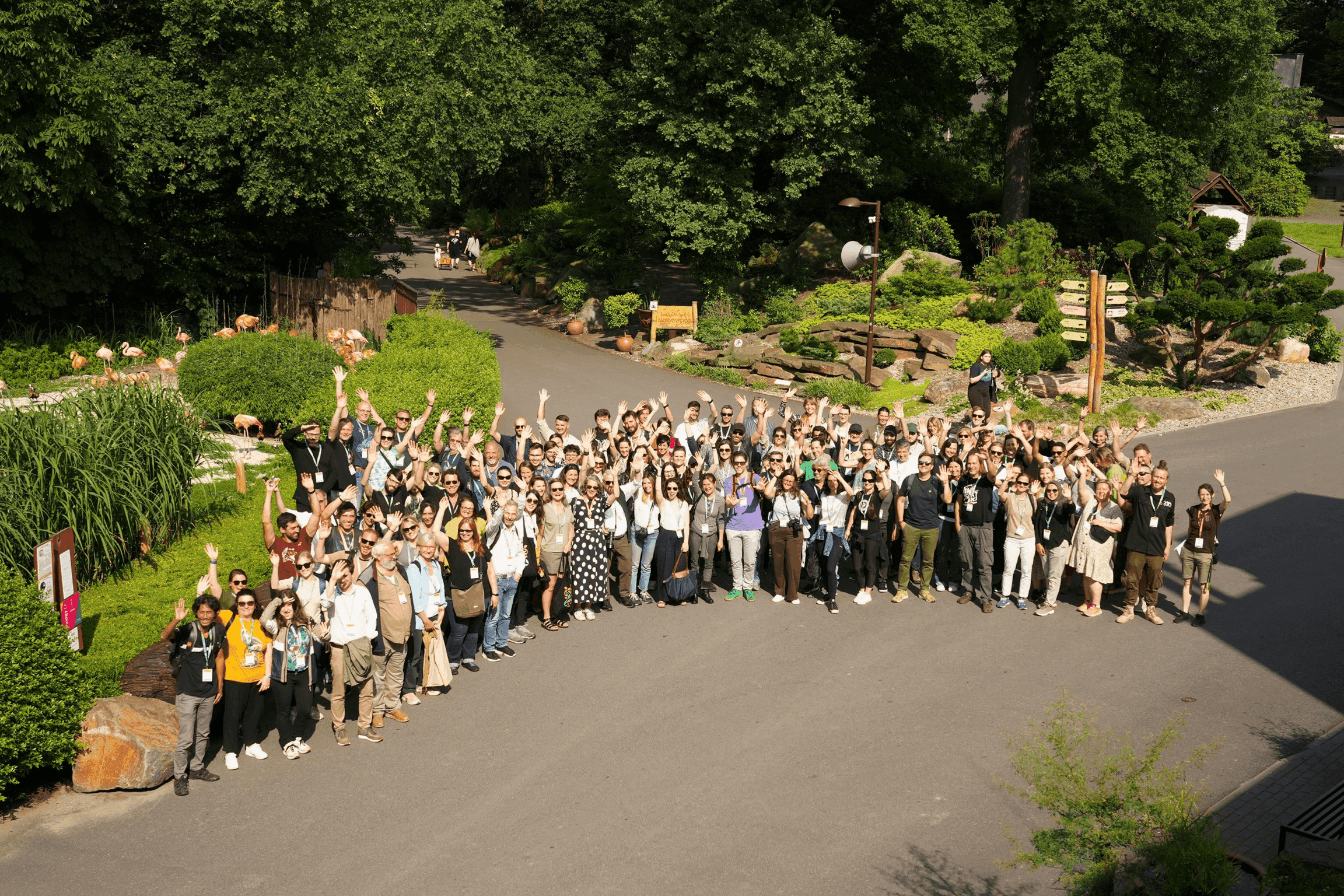
Joint TAG Chairs meeting
The Joint TAG Chairs meeting highlights developments and trends in population management across the zoo and aquarium community and its partners, as well as recent inter-regional successful initiatives and collaborations. This event is attended by delegates from around the world and provide an opportunity to network, share ideas, connect with other stakeholders, and report on the successes and lessons learned from our collaborations.
The 5th Joint TAG Chairs Meeting was hosted by RZSS Edinburgh Zoo (Scotland) on 6 - 9 May 2024.
